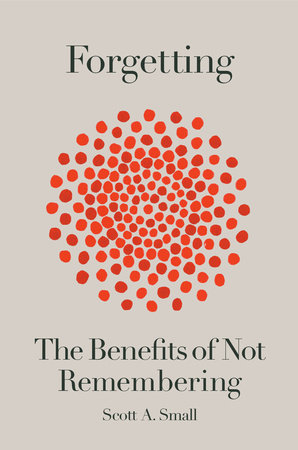Don't wanna be here? Send us removal request.
Text
A Passion for Ignorance

Bridging the Gaps Website
In this episode of Bridging the Gaps, Dr. Waseem Akhtar and Senior Researcher Renata Salecl discuss various insights on ignorance, most of which come from Professor Renata's latest book A Passion for Ignorance (Akhtar|October 26th et al., n.d.). One of the opening statements of this episode, “In this post-truth, post-industrial world, we often feel overwhelmed by the information and misinformation overload, " initially drew my attention to this episode. Since, just by clicking a link or touching our Smartphone screens, we can access a never-ending stream of information, which produces an awful sense of anxiety and uncertainty in individuals. This episode of Bridging the Gaps aims to provide more light on this subject of ignorance, existential dread, and anxiety, which I have personally experienced for the same reason.
In this blog, I will highlight the 3 main ideas I learned from the conversation. One is the importance of understanding the "ignorance economy" some institutions force on society and how it affects us daily. As well we will discuss how and why ignorance is not always bad, especially from a survival perspective. Lastly, the paradox of choice or the ideology of choice and how this idealization affects the individual and social changes.
Professor Renata Salecl is a Senior Researcher at the Institute of Criminology at the Faculty of Law in Ljubljana, Slovenia, she is also a Professor at the School of Law, Birkbeck College, London. She has an interdisciplinary work that focuses “on bringing together law, criminology, the study of political ideologies, and psychoanalysis.” She is the author of many books and research such as The Tyranny of Choice, On Anxiety, The Pleasure of Transgression, and many others (Salecl, n.d.).

Cover of the book A Passion for Ignorance
Like it was mentioned in the beginning, the mention of an ignorance economy really caught my attention. We are led to assume that we have freedom of choice while seeking information online or simply surfing the web using search engines like Google or social media platforms like Tik Tok. However, all of it is managed by algorithms that show us websites and content in a specific hierarchy that is most helpful to businesses or governments. Professor Renata also talks about how copyrighted material from companies or even universities is a part of this limit on the knowledge available to the public, creating off-limit knowledge and perpetuating ignorance.
Although the discussion leaned more toward the harm ignorance does to society, I learned how ignorance may occasionally be advantageous for someone. Professor Renata illustrated this point with a personal anecdote from the Yugoslav war in which she witnessed the necessity of actively ignoring traumatic information for survival. She also discusses how ignorance is a significant factor in romantic relationships. Since ignorance creates fantasies, and too much knowledge destroys this fantasy, which is “the core of love feelings.”
Finally, I thought the episode's discussion of the paradox of choice was the most intriguing. Professor Renata explains how the ideology of choice has created the illusion that everyone “can make it” and how it all depends on us to succeed in this world. This ideology can sometimes make people who, for example, have no wealth, defend the wealthy even if it is detrimental to themselves because deep down they believe they or their children will be wealthy. Therefore, they don't want to jeopardize their idealized future, their fiction, which only benefits more prominent corporations or governments; institutions who are happy to keep the public in the dark on this issue. Which in the end marks the success of neoliberalism. This topic is further analyzed in a Ted Talk Professor Renata gave in 2014 (Renata Salecl: Our Unhealthy Obsession with Choice, 2014).
Professor Renata provides a thorough analysis of ignorance, highlighting its adverse effects on individuals and society as well as its potential upsides, which at first glance may appear contradictory. In conclusion, this is a topic the public must study or at least be aware of since even the slightest choices they make might be manipulated or be beneficial for others and not themselves, all due to ignoring the "rules of the game".
References
Akhtar|October 26th, D.W. et al. Bridging the Gaps – ‘A Passion for Ignorance’ and for Denials and Negations with Professor Renata Salecl. Bridging the Gaps. Available at: https://www.bridgingthegaps.ie/2020/10/a-passion-for-ignorance-and-for-denials-and-negations-with-professor-renata-salecl/ (Accessed: 9 October 2022).
Salecl, R. About | Renata Salecl. Available at: http://renatasalecl.com/about-2/ (Accessed: 9 October 2022).
Renata Salecl: Our Unhealthy Obsession with Choice (2014) Directed by TED Available at: https://www.youtube.com/watch?v=NRXCxJGQ4KY (Accessed: 9 October 2022) TED.
0 notes
Text
Bridging the Gaps - Forgetting

Bridging the Gaps Website
“How does memory work?” That’s the first question asked in this episode of Bridging the Gap, and what a perfect and beautiful cliffhanger to an in-depth discussion of memory and the human brain. Due to personal tragedies involving Alzheimer's and dementia, this topic caught my attention immediately. How can we forget? How can we remember? And most importantly why is forgetting a good thing? Even though I had already seen and experienced the awful effects of forgetfulness with a close family member.
In this episode, Dr. Scott A. Small discusses specific insights from his book Forgetting the Benefits of Not Remembering. Dr. Scott is the Director of the Alzheimer’s Disease Research Center at Columbia University. He “has co-authored over 120 articles, and his neuroimaging and molecular work have led to 7 patents.” His areas of expertise are dementia and memory impairment, and his research focuses on “The hippocampal formation functions as a three-dimensional network.”

Forgetting Book Cover
Dr. Scott’s Columbia Profile: https://www.neurology.columbia.edu/profile/scott-small-md
In this episode, three main ideas caught my attention. Firstly, the discussion of the photographic memory myth and why it could not be beneficial for humans although it is desired by many. Dr. Scott discusses how “normal” forgetting benefits us from the emotional and informational nature of memory. He gives a simple but powerful example of PTSD and how this disorder comes from the fact that people cannot repeatedly forget they relive traumatic experiences. He continues with a beautiful and poetic discussion of Funes the Memorious, a fiction work by Borges that explores the horrendous causes of remembering everything in your life.
Another aspect that interested me was the discussion about why Alzheimer's affects one specific part of our brain, not neighboring regions. However, they are made from the same material, neurons. Dr. Scott discusses that this is the key to understanding and a way to combat Alzheimer's in the future.
I found it most interesting when he explains how humans are the only animals in nature that suffer from Alzheimer although our hippocampus is the same in different species. It is as if that same thing that makes us unique, our advanced and developed brain with a superior number of spokes is our downfall when talking about Alzheimer's. A hyperactive brain that after many years may have problems from usage.
Finally, I found the discussion of how genes cause Alzheimer's but not the only one, very insightful and crucial for the public to understand. Although 3 to 4 genes contribute to Alzheimer's, diet and a healthy cardiovascular routine are pivotal to avoiding or at least combating this complex disorder. The saying “healthy body, healthy mind” comes into mind, and suddenly it has increased value and importance.
“Normal forgetting” is as important as remembering, a healthy brain maintains a balance between these two, which is the key to understanding or at least starting to understand our complex gray matter and how it changes over time.
0 notes
Text
Bridging the Gap - Machines Like Us

Bridging The Gaps Website
Artificial Intelligence (AI) is a fascinating topic that has attracted me since I used the AI drawing and design tool Mid Journey. In this episode of Bridging the Gaps, I was able to learn much more about what AI is about and its journey into the future. https://www.bridgingthegaps.ie/2022/06/machines-like-us-toward-ai-with-common-sense-with-professor-ronald-brachman/
In this interview, Ron Brachman, director of the Jacobs Technion-Cornell Institute, discusses many interesting insights from his new book Machine Like Us Toward AI with Common Sense. This book studies the more complex aspects of AI learning, coming from the current and narrow, goal-oriented AI learning to the ideal of an autonomous, decision-making AI.

Cover of book Machines Like Us
Ron Brachman is not only the director of the Jacobs Technion-Cornell Institute but is a professor of Computer Science at Cornell University. He graduated Summa Cum Laude in 1971 from Princeton University and received his Ph.D. in 1977 in Applied Mathematics from Harvard University. His research specialization was AI, specifically Knowledge Representation and Reasoning an area in which he is now a global authority.
Link to Ron Brachman Cornell profile: https://tech.cornell.edu/people/ron-brachman/
Link to Ron Brachman website: http://www.brachman.org/home.html
In this episode of Bridging the Gaps, three things stood out for me regarding the topic of AI. First is the importance of autonomy in AI; as part of the public that doesn’t dive too much into this topic, I never imagined the importance of autonomy in AI applications. And all is exemplified in the Mars Rover discussion. A rover on Mars has a mission of finding rocks, but what happens if the robot finds a different and much more interesting material that wasn’t part of its original goal? With the current goal-oriented AI, it would be impossible for the robot to change or determine the importance of its discovery, unlike a human that would communicate its findings and determine a new course of action. Therefore, autonomy and decision-making are crucial for this technology in the future and present.
Another topic that caught my attention is how autonomous and common sensical behavior in AI is crucial to avoid catastrophes or tragic outcomes. Ron discusses how a family could look for a “challenge” with Alexa or any other AI machine and Alexa after examining its algorithm gives a dangerous but viral challenge to the little kid in the family. Is this the fault of the robot? Of course not, but that is the importance of common sensical behavior in AI.
Lastly, I found impressive the mention of John McCarthy. McCarthy is one of the founders of Artificial Intelligence as a discipline, he initially proposed the name Synthetic Intelligence instead of Artificial Intelligence, due to the autonomous behavior he believed machines should have. Since this intelligence is not fake, not "artificial" it is real and must mirror that of human beings with its complexities as common-sensical decision-making, advice taker, and leaning on previous experiences.
0 notes